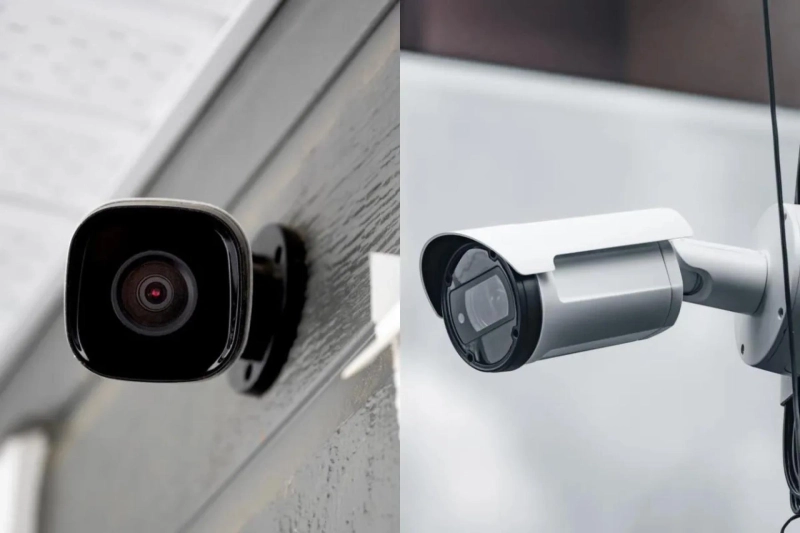In the evolving world of security technology, understanding the distinctions between different types of cameras is crucial for selecting the right surveillance solution. Among the most commonly debated are WiFi cameras and IP cameras.
Both play pivotal roles in modern security systems but differ significantly in functionality, connectivity, and application.
Understanding IP Cameras
An IP camera, or Internet Protocol camera, is a type of digital video camera that receives control data and sends image data via an IP network.
Unlike traditional analog cameras that transmit video signals as a voltage, IP cameras send and receive data through a computer network and the internet. This allows for greater flexibility as IP cameras do not require a direct connection to a recording device but only to a network.
Key Features of IP Cameras
Network Connectivity: IP cameras connect directly to your network, allowing remote access from anywhere in the world.High Resolution: These cameras generally offer higher resolution images, which results in clearer and more detailed footage.Scalability: Adding new cameras to an existing network is generally straightforward, allowing for scalable security solutions.Power Over Ethernet (PoE): Many IP cameras can be powered via the Ethernet cable, simplifying wiring and reducing installation costs.Understanding WiFi Cameras
WiFi cameras are a subset of IP cameras that specifically use WiFi to connect to the network, eliminating the need for a wired connection. They are particularly valued for their ease of installation and flexibility in placement.
Key Features of WiFi Cameras
Wireless Connectivity: The most defining feature of WiFi cameras is their ability to connect to a wireless network, which allows for a cleaner setup without the clutter of cables.Flexibility in Installation: The absence of wires provides significant flexibility in camera placement and repositioning.Dependence on WiFi Strength: The performance of WiFi cameras is heavily dependent on the strength and reliability of the WiFi signal.Comparative Analysis: WiFi Cameras vs. IP Cameras
While both types of cameras serve the same primary purpose—security monitoring—their suitability varies depending on the application and environment.
Connectivity and Reliability: IP cameras, which can be connected via Ethernet, offer more reliable connections compared to WiFi cameras. The latter can suffer from signal interference and bandwidth issues, impacting video quality and reliability.Installation and Setup: WiFi cameras are typically easier to install and move, making them ideal for temporary setups or residential use. On the other hand, IP cameras, with options for wired connections, are better suited for permanent installations, especially in areas requiring stable and high-quality video.Cost and Maintenance: Initial setup costs for WiFi cameras can be lower since they do not require extensive wiring. However, maintaining strong and secure WiFi can be challenging, especially in larger setups.Expert Security Camera Installation
For both WiFi and IP cameras, expert security camera installation is recommended to ensure optimal setup and performance. Professionals can help not only with the physical installation but also with configuring network settings, ensuring all cameras are properly integrated into the existing security infrastructure.
The Role of Video Analytics
The integration of video analytics has transformed how security cameras are used, from simple recording devices to smart security tools capable of real-time analysis and decision-making. Video analytics can detect motion, track heat signatures, and even recognize faces, enhancing the security capabilities of both WiFi and IP cameras.
Conclusion
Choosing between a WiFi camera and an IP camera largely depends on your specific security needs, environment, and budget. Understanding the fundamental differences and operational requirements of each can help in making an informed decision that enhances security and peace of mind. In an era where security threats are increasingly sophisticated, investing in the right camera technology is more crucial than ever.


